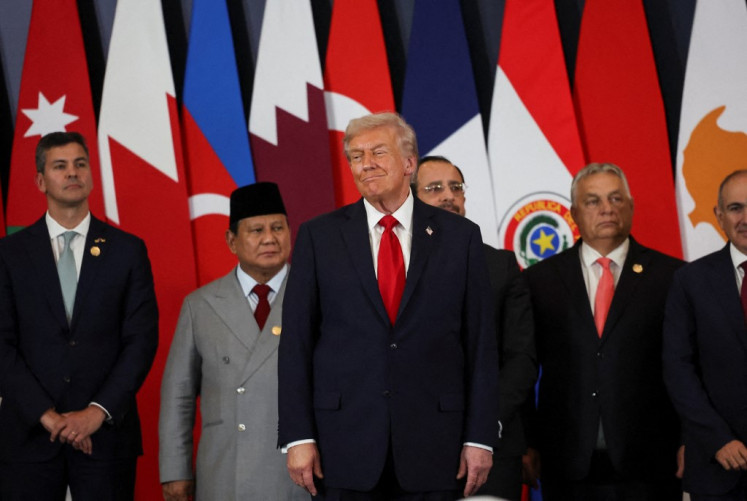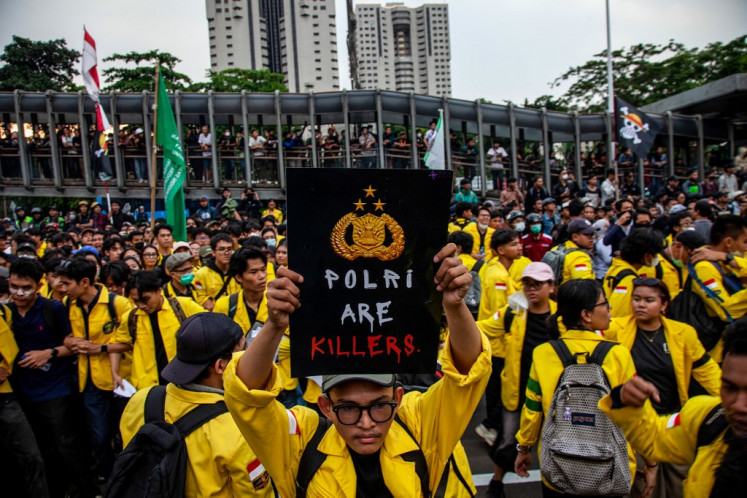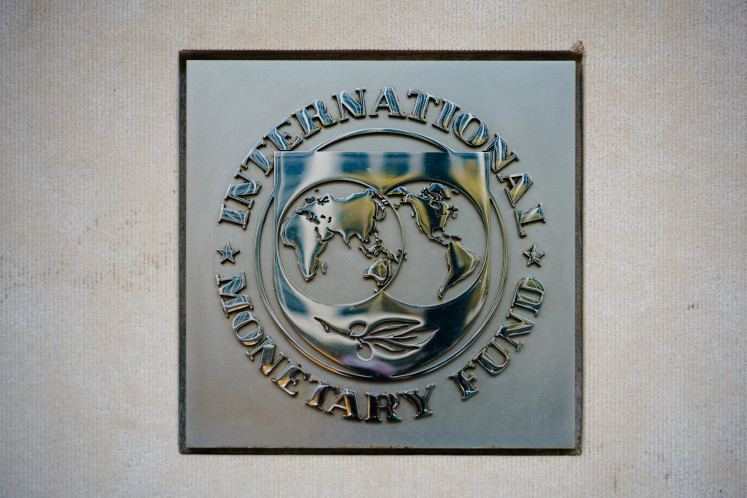Popular Reads
Top Results
Can't find what you're looking for?
View all search resultsPopular Reads
Top Results
Can't find what you're looking for?
View all search resultsReflecting on Indonesia’s political feudalism
Assembling a winning campaign team is therefore crucial, and hence, for a candidate to sever ties with their campaign team would cause a political uproar.
Change text size
Gift Premium Articles
to Anyone
D
uring the European medieval era, serfs would huddle under the protection of their harsh rulers in a confined sanctum that shielded them from the dangers of the world outside. In return, the serfs worked their despotic lords’ lands to enrich them.
The lines of serfdom and lordship are blurred today, when leaders are often subjected to the interests of their supporters; or better yet, their donors, who are more than happy to pull the puppet strings of power, concealed behind an elected official.
Despite global efforts to enhance good governance, the politics of give-and-take still permeates election campaigns or are embedded in the policy proposals of elected officials. This is no different in Indonesia.
The recent arrest of South Sulawesi Governor Nurdin Abdullah has once again started tongues wagging in the national media, with an almost routine dissection of the roots, causes and judgments regarding why corruption continues to mar the public images of the country’s regional leaders.
Djohermansyah Djohan, an astute and senior technocrat who was a former director general of regional autonomy, recently articulated that if any elected official wanted to stay clean of corruption, then they should immediately cut their ties with their “tim sukses” (campaign teams).
Of course, taking such a course of action would provide every elected official with peace of mind, so they could govern without having to deal with the vested interests of those who polished the pedestal for them to reach a higher office. Indeed, if you cut Pinocchio’s strings, he is no longer a puppet but a person who is free to decide and choose his own course.
On the other hand, it must be deduced realistically that when it comes to running for office, whether in Indonesia or another country, campaign teams are necessary to row the vessel (the candidate) to victorious shores. Often, these campaign teams provide the credibility and votes and raise the funds needed to secure a candidate’s electoral victory.
The campaign team behind Biden-Harris ticket in the United States presidential election raised a record-breaking US$350 million. This raises the question as to whether Joe Biden should have been called a candidate or an interim CEO of a start-up. Hillary Clinton and her campaign team raised upwards of $500 million during the 2016 US presidential election, while President Joko “Jokowi” Widodo’s 2019 campaign team raised Rp 601 billion ($42 million).
Assembling a winning campaign team is therefore crucial, and hence, for a candidate to sever ties with their campaign team would cause a political uproar.
After all, there are conditions to the extent of a campaign team’s political patronage that society will accept, such as in the selection of cabinet members. When Jokowi won the presidency in 2014 and his second term 2019, that his cabinet would include people from his campaign and coalition was expected.
In the United Kingdom, for example, if a particular party secures a majority in the House of Commons, the prime minister and cabinet, in most situations, will be filled with members of that majority party.
This is the same in the US, where the newly minted Biden-Harris administration has nominated or installed cabinet members largely from the Democratic Party, a standard that extends to even the lower echelons of the Department of State. This latter is a feat, however, that would be out of the question in Indonesia.
Even in the previous administration, Trump nominated Republican mega donors Betsy DeVos and Kelly Craft as education secretary and UN ambassador, respectively.
Is this illegal? No. Unethical? Up for debate. What is illegal is if someone uses their position in elected office for illicit financial gain through corruption, collusion and nepotism, or KKN.
Thus, if the enabling of corruption centers around the quid pro quo that campaign teams expect, then the assertion should not be unrealistically severing a campaign team and their interests from the elected official, but rather the conviction that a campaign team should be formed on a foundation of integrity and principle, as well as an orientation to actually solve the long-standing problems of wong cilik (the common people).
First, it should be acknowledged that campaign teams cannot be separated from their association with political parties, and that Indonesia faces greater complexities in achieving ideal campaign teams due to the consistent fluidity and dynamism of coalition politics. Loyalties can change frequently, and inconsistent political support leads to a weaker capacity to push through policy, whether at the regional or national level.
Understanding the dynamics of coalition politics establishes a starting point as to what a political candidate can do to implement incremental and positive change when assembling their campaign team.
Second, considering the value that political parties hold for the electoral process, they should be the first in line to call and weed out individuals or associations that might be more interested in benefitting financially from an elected public official than in meaningful policy change. This initiative is not without its challenges, as political parties are themselves reliant on the donations from party members, both elected and unelected.
Third, in order to bolster good governance in the campaign process and to place accountability on campaign teams, citizens need to make a concerted and systematic effort to take greater part in political campaigns, and this would even include donating money to candidates at the grassroots level. Candidates need concrete plans that are approachable to inspire people to donate, even in the smallest amount, so that individual citizens feel invested in both the political process and their preferred candidate.
Indonesia’s journey toward good governance has met with bumps along the way, but the fact that the country is moving forward should be a consolation. However, more can be done by forming campaign teams that are based on integrity and by increasing public participation.
If we are to truly break from modern political feudalism, there needs to be systematic change so that a valid social contract, by the people and for the people, can finally be drafted.
***
The writer is a researcher and partnership head at the Djokosoetono Research Center of the University of Indonesia law school. The opinions expressed are personal.

















